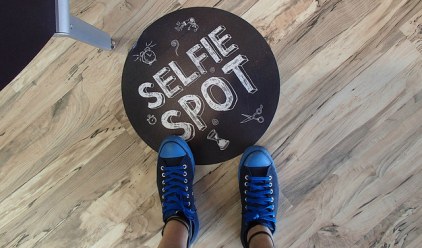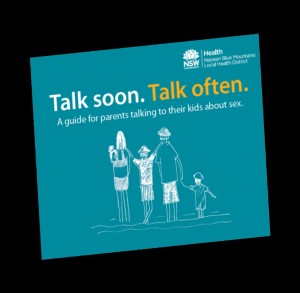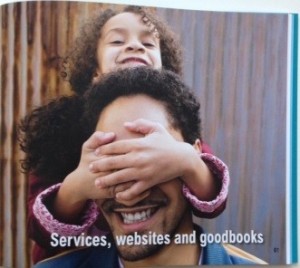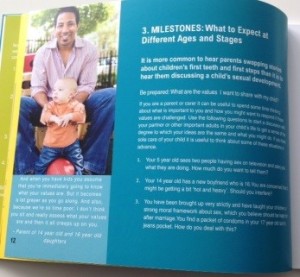Rethinking media and sexuality education: executive summary
Executive Summary
What’s the problem?
- Parents, educators and policy makers are overwhelmed by the pace at which digital technologies (such as mobile phone and tablets) and platforms (such as Facebook and Snapchat) are evolving – and the increasing role they play in young people’s lives.
- Practices such as sexting (the digital sharing of naked or semi-naked pictures) create complex legal and socio-cultural challenges for young people, schools and families.
- To date, health promotion and education policy and practice have struggled to develop activities and messages that offer young people better guidance than ‘just say no’.
What we did
- Four three-hour workshops were held in New South Wales and Queensland with secondary teachers, health promoters and youth workers (n=77). The workshops covered three relevant theories of media communications as well as practical activities adapted from The Selfie Course developed by Kath Albury, Terri Senft and colleagues. Follow-up surveys assessed the extent to which participants found this approach useful, relevant and applicable to their work.
What we found
- There are both individual and institutional barriers to an asset-based approach to young people’s digital media practices. At best, an approach focused solely on risk will result in frustration for professionals and young people alike. At worst, it will actively undermine trust between young people and the services that wish to support them.
- Educators and policy-makers need to move beyond asking ‘what does media do to young people?’ towards asking instead ‘what do young people do with media?’ The frameworks and activities piloted and evaluated in this study can support them to make this change.
Next steps
- A majority of participants indicated a desire to engage further with critical theory and practice models for working with young people in the area of media and sexuality education.
- This report presents data self-reported by participants. Future research could engage more closely with educators to better understand how the frameworks and activities piloted in this project are applied and translated in their practice.
The Rethinking media and sexuality education project 2015 was led by Kath Albury and Paul Byron, UNSW, with the support of True Relationships & Reproductive Health Queensland, and Family Planning NSW.
The preliminary research report is being launched this morning at AFSEH’s First National Conference, at Western Sydney University.
A full pdf is available for download here.
Follow the AFSEH conference Twitter conversation at #afseh15.
Planning to discuss the Essena O’Neill story with young people? Read this first…
(illustration credit: Anthony Stone)
Western Australian academic Crystal Abidin recently completed an ethnographic study of social media ‘influencers’. Her research tells us that the Essena O’Neill story is about A LOT more than the dangers of social media.
This blog post (and others on Crystal’s blog) offers an overview on mainstream media coverage of O’Neill’s story, and suggests some ways to think about and discuss it, without blaming, or shaming young people’s social media practices. As Abidin provocatively puts it:
Dwelling on the micro-public actions of one 18-year-old (without taking into account nuances like her demographic, context, backstory, motivations, etc) and casting a blanket statement that WE NEED TO SAVE YOUNG PEOPLE or that YOUNG PEOPLE ARE NARCISSISTIC is
1) shallow albeit clickbaity,
2) prescriptive and not descriptive, and
3) just not productive. What is the value of another article describing how O’Neill cried through her video?
AFSEH members Kath Albury and Paul Byron have been conducting research into the ways that Australian sexuality educators and health promotion professionals engage with young people’s digital and mobile media practices. They will be launching their initial report on this project at the AFSEH National Conference at the University of Western Sydney in late November. You can check out a draft program here, and register for the conference here.
Young people, sexuality and diversity – evidence, entitlement and effectiveness
| When: | 25 Nov 2015, 12:30pm – 1:30pm |
| Venue: | CSRH, Level 2 John Goodsell Building, UNSW Kensington |
| Who: | Simon Blake, Chief Executive of the National Union of Students in the UK |
This seminar will look at the way rights, values and evidence can come together to provide all young people with education and support that enables children and young people to develop the confidence, skills and knowledge to manage their relationships, choices and sexual lives as they move through puberty, adolescence and into adulthood.
Simon Blake OBE is Chief Executive of the National Union of Students in the UK, a confederation of 600 Students’ Unions. He is Deputy Chair of Stonewall, the lesbian, gay, bisexual and transgender charity. Until May this year, all of Simon’s work had been solely focused on sex and relationships education, sexual health and well being for over 20 years. He was Chief Executive of Brook, the young people’s sexual health charity and Sex Education Forum.
To register: https://csrh.arts.unsw.edu.au/event/young-people-sexuality-and-diversity-evidence-entitlement-and-effectiveness/
Respectful Relationships Education as Violence Prevention: call for speakers
True Relationships and Reproductive Health in partnership with the Australia Forum on Sexuality, Education and Health (AFSEH) are organising a teacher led forum to be held in February 2016.
Date 18 February 2016
Time 9.00am-4.30pm
Cost This is a non-profit event; however a small fee may be charged to cover the cost of venue hire and light refreshments.
Venue Brisbane (TBA)
Note: Registrations will open in November 2015
Background
Earlier this year, a national forum discussed relationships and sexuality education in schools as an important form of violence prevention.
Discussion centered on:
- Schools as platforms for violence prevention work
- How schools can reduce children’s vulnerability to bullying, emotional violence, violence, sexual abuse and assault
- Whole of school and community-wide approaches
Participants at the forum requested another event with a longer time frame that is teacher-led.
Audience
Teachers, principals, school nurses, youth workers, researchers and anyone interested in expanding community based responses to violence prevention and child protection
Submitting an expression of interest to present
We are calling for speakers who are willing to share their contemporary approaches to relationships and sexuality education.
In your expression of interest please provide:
- An abstract (maximum 300 words)
- A brief biography (maximum 200 words)
- Details of how long you would like to present and the workshop/facilitation approach you would like to use
- Any other requirements or considerations
Expressions of interest
Please send your expression of interest by COB Wednesday 14 October 2015 to
More information
Please contact Rebecca Johnson
E rebecca.johnson@true.org.au
P 07 3250 0240
Voices of Sexuality Education – video resources
This free resource consists of a series of youtube clips portraying the sexuality education experiences of young people and their parents/carers from a range of cultural backgrounds, belief systems, abilities/disabilities, from rural locations, and including those who are same sex attracted or sex and gender diverse. It also features sexuality education professionals who share their knowledge.
It is divided into two sections:
o Contemporary Sexuality Education: challenges and opportunities (7 clips)
o Inclusive Practice (15 clips)
It aims to:
o assist in preparing pre-service teachers to teach sexuality education
o support existing teachers and health workers
o align with sexuality education resources, particularly Sexuality Education Matters: Preparing pre-service teachers to teach sexuality education, Deakin University
Each youtube clip has a list of relevant resources and prompt questions are provided as a way to engage educators in critical reflection.
The sexuality education professionals featured in the resource include: Debbie Ollis, Mary Lou Rasmussen, Jenny Walsh, and Maree Crabbe.
The resource was created by the Centre for Excellence in Rural Sexual Health (CERSH), The University of Melbourne.
The following organisations and committees (in alphabetical order) collaborated on the project: Albury Wodonga Aboriginal Health Service (AWAHS); Australian Research Centre in Sex, Health & Society, La Trobe University; Barwon Health; Bendigo Community Health Services; Brophy Family Youth Services; Deakin University; Golden City Support Services; La Trobe University; Loddon Campaspe Centre Against Sexual Assault; Monash University; Multicultural Health Support Services, Centre for Culture, Ethnicity & Health; Northern Bay P-12 College; Sexuality Education Matters Steering Committee; UnitingCare Cutting Edge; Victorian Aboriginal Community Controlled Health Organisation (VACCHO); Victorian Aboriginal Education Association Incorporated (VAEAI)
For more information contact Kylie Stephens, Senior Health Promotion Manager, Centre for Excellence in Rural Sexual Health kylies@unimelb.edu.au For other sexuality education resources visit http://www.cersh.com.au/projects/smart-deadly/
AFSEH conference: Abstract deadline extended to September 21
1st National Conference Australia Forum on Sexuality, Education and Health
Equity and Justice – in Gender, Sexuality, Education and Health
22-23 November 2015, Western Sydney University (Parramatta Campus)
Conference themes include:
Genders and sexualities in health and education: working together for equity and justice
Digital cultures and youth – rights, ethics and responsibilities
Intersectionality, sexualities and gender
Communities, parents and sexual health – whose rights?
Youth-led initiatives – local and international perspectives
Popular pedagogies and informal education
Abstracts
We invite abstracts for papers, posters and symposia presentations. Abstracts should not exceed 300 words and address one (or more) of the conference themes above. Please include with your abstract, the presentation’s title, the presenter’s name and affiliation (or list of presenters’ names and affiliations), the conference theme addressed and contact details including an email address. All abstracts will undergo peer review.
Send your abstract to Jawed Gebrael at J.Gebrael@westernsydney.edu.au
Abstracts should be received by close of business, Monday September 21, 2015
To register, go to https://ipay.uws.edu.au/pgrp_show.asp
Scroll down to School of Education and click on the box next to Australia Forum on Sexuality, Education and Health (AFSEH) National Conference. Scroll to the bottom of the page and then click on Submit. You will then be taken to another page where you can enter your details and pay for the registration.
The cost to attend is $90, which includes meals and light refreshments
Any enquiries to Jawed Gebrael at J.Gebrael@westernsydney.edu.au
The 1st AFSEH Conference is supported by
The Centre for Educational Research and the Sexualities & Genders Research Network at Western Sydney University; The Arts and Social Sciences Practical Justice Initiative and the Centre for Social Research in Health at UNSW Australia; and The Australian Research Centre in Sex, Health and Society (ARCSHS) at La Trobe University
CFP: AFSEH 1st National Conference ‘Equity and Justice – in Gender, Sexuality, Education and Health’
University of Western Sydney, Parramatta, NSW
22-23 November 2015
The Australia Forum on Sexuality, Education and Health (AFSEH) announces a Call for Papers for its 1st National Conference, to be held on the Parramatta campus of the University of Western Sydney.
AFSEH brings together practitioners, educators, students, researchers and policy makers from across Australia, working in the fields of gender, sexuality, education and health. The forum enables discussion and debate on contemporary issues and concerns, builds and consolidates networks, and develops collaborative initiatives.
The 1st National Conference seeks to increase the public profile of work on equity and justice particularly pertaining to gender, sexuality, health and education issues today. The meeting will provide a catalyst for important interdisciplinary work to address these concerns.
Keynote speakers include Simon Blake (Chief Executive Officer of the UK National Union of Students and formerly Chief Executive Officer of Brook – the health charity for children and the National Children’s Bureau’s Sex Education Forum) and Julie Bates (Director of Urban Realists, lobbyist, ‘out’ sex worker, harm reduction advocate and sex worker rights activist for more than a quarter of a century)
We invite abstracts for papers, posters and symposia presentations. Abstracts should be 300 words long and address one (or more) of the themes below. All abstracts will undergo peer review.
Conference Themes
- Genders and sexualities in health and education: working together for equity and justice
- Digital cultures and youth – rights, ethics and responsibilities
- Intersectionality, sexualities and gender
- Communities, parents and sexual health – whose rights?
- Youth-led initiatives – local and international perspectives
- Popular pedagogies and informal education
It is envisaged that at least two publications will arise from the conference: a special issue of the peer-reviewed journal, Sex Education, and a book based on a combination of theoretical and cross-disciplinary educator/practitioner work.
Submitting your abstract:
Please include along with your abstract, the presentation’s title, the presenter’s name and affiliation (or list of presenters’ names and affiliations), the conference theme addressed and contact details including an email address.
Send your abstract to Jawed Gebrael J.Gebrael@uws.edu.au
Abstracts should be received by close of business, Friday September 11, 2015
The 1st AFSEH National Conference is supported jointly by:
The Centre for Educational Research and the Sexualities & Genders Research Network at the University of Western Sydney
The Arts and Social Sciences Practical Justice Initiative and the Centre for Social Research in Health at UNSW Australia
The Australian Research Centre in Sex, Health and Society (ARCSHS) at La Trobe University
Talk soon. Talk often. A guide for parents talking to their kids about sex
Designed for parents and carers, Talk soon. Talk often was originally developed in 2011 by the Western Australia Department of Health, following research by La Trobe University to determine what parents want with regard to the sexuality education of their children. The recommendations from Parents and sex education in Western Australia – A consultation with parents on educating their children about sexual health at home and school (2008) by Sue Dyson, included the need for a high quality, attractive resource that would be long lasting and well used within families and across communities.
There have been several print runs in WA with over 60,000 books being distributed since its initial release in late 2011. Talk soon. Talk often has also been reproduced in Tasmania and its content and messaging has been used to develop shorter, specialised resources in other states.
The original publication, written by Jenny Walsh from La Trobe University has now been updated by the HARP Team of Nepean Blue Mountains Local Health District to reflect the NSW context and is being launched across the Local Health Districts of Nepean Blue Mountains, Western Sydney and Hunter New England. The changes include updated referrals, information about relevant NSW programs and legal issues. The photos have been changed to reflect the diversity of communities across NSW.
Talk soon. Talk often is a broad resource that reflects the diversity of parent’s voices. The book is a great companion to the NSW PDHPE Curriculum, and aligns with the NSW Department of Education document About sexuality and sexual health education in NSW government schools, March 2015. It enables families to extend the classroom learning without fear or awkwardness about language and challenging questions. Talk soon. Talk often aims to establish open and honest communication from early in childhood. The book provides tips on creating easy conversations about bodies, relationships, health and sexuality, as part of routine communication.
For further information, to contact:
Bronwyn Leece Bronwyn.Leece@health.nsw.gov.au (02 4734 3998) or Louise Maher Louise.Maher1@health.nsw.gov.au
Academic Research, New Media Technologies and the Culture of Control
An Interdisciplinary Workshop at The University of Wollongong
2 and 3 October 2015
Organised by Mark McLelland and Andrew Whelan, School of Humanities and Social Inquiry, University of Wollongong
BACKGROUND
In the last decade there has been a transformation of media consumption, production, dissemination and networking enabled by expanding access to mobile broadband. One important difference between this new era and prior media transformations is the breakdown between media audiences/consumers and producers/broadcasters. The shift to digital media has led to a massive increase in user-generated content (UGC), and hybrid terms such as ‘produser’ and ‘prosumer’ have been developed to capture the new relationship that media users now have with digital content and technologies.
These rapid changes in contemporary ‘mediascapes’ have led to enhanced regulatory measures with respect to censorship, data storage and management, privacy and intellectual property. Fear and insecurity about the online environment are driving ongoing calls for increased regulation and preventative security, especially in relation to children and to terrorism. Discourses of ‘harm’ and ‘risk’ have led to a demand for a suite of regulations that now capture individuals’ online lives, burdening internet providers and users in ways that multiply this regulatory impact. These discourses and their articulations extend across government legislation and down to policies at local institutional levels: in the home, in workplaces, in schools, and also in universities. Yet within the scholarly community, there has been little interest to date in addressing the consequences for academic research itself, given research is shaped by university protocols (such as IT and acceptable use policies, data retention requirements, mandatory reporting, civility codes and ethics committees).
This workshop brings together researchers from sociology, anthropology, information technology, law, fan studies and media studies to discuss the impact that enhanced regulatory frameworks have had on shaping the kinds of research that can be undertaken and on deterring certain kinds of questions and agendas. Speakers take up ‘the challenge . . . to take a more active role in shaping public policy making that can impact on the conduct of e-research’ (Lyons et al., 2010: 159). We aim to produce a collection of papers that informs academics, online users, university lawyers and ethics committees, legislators and other interested parties about the consequences of recent legislative changes and to support the development of more effective, evidence-based policies regarding research into online spaces and the regulation of such spaces.
CONFIRMED SPEAKERS
- Kath Albury (Arts and Media, UNSW): Self-Representation = Self-Incrimination: The Risks and Opportunities of Researching Young People’s Digital Cultures
- Lyria Bennett Moses (Law, UNSW): Defining the Regulatory Space
- Joseph Brennan (Media & Comms, USyd): Finding the Right Frame: When Fan Works ‘Play’ beyond the Limits of Classification
- Catherine Driscoll and Liam Grealy (Cultural Studies, USYd): Media Classification and Mionoritised Adolescence
- Terry Flew (Media and Communication, QUT): Weber, Foucault and the Governance of Media Content
- Laura Lowenkron (Anthroplogy, Unicamp): Politics of Fear and Regulation of Desires: The Brazilian Political Crusade against Pedophilia and Child Pornography on the Internet
- Mark McLelland (Sociology, UOW): Surveilling Fantasy: Thought Policing or Pre-Emptive Action?
- Katina Michael (Information Sciences, UOW) The ethics of observation: who is watching who?
- Chris Moore (Media & Communication, UOW): Persona Autosurveillance: Digital Objects, Privacy, Property and Visualising the Presentation of the Public Self
- Maria Pallotta-Chiarolli (Health and Social Development, Deakin): The ‘C’ Words: Clitorises, Childhood and Challenging Compulsory Heterosexuality in Education
- Brady Robards (Sociology, UTas): Scrolling Back on Facebook: Qualitative Research into Social Media
- Brian Simpson (Law, UNE): Legal Narratives of Childhood in the Digital Age: Tensions and Contradictions in the Regulation of the Innocent, Autonomous or Otherwise ‘Wicked Child’
- Andrew Whelan (Sociology, UOW): What is Obscene Enough? Pretending to Not Know — Obscenity and Absurdity
ABSTRACTS AND DRAFT PROGRAM
To book a place please email the secretariat at uow.newmediaethics@gmail.com
Growing & developing healthy relationships: supporting schools to deliver effective sexuality & relationships education (WA)
When: Monday 26th October, 2015 | 8‐4.30pm |
Where: Technology Park Function Centre, 2 Brodie‐Hall Drive, Bentley WA
Join us for this exciting full‐day event where we showcase recent developments in school‐based sexuality and relationships education (SRE).
Hear from a broad range of engaging speakers, speak with a variety of WA agencies that can support you with your delivery of SRE and participate in a range of practical activities that you can take straight back to your classroom.
Anyone interested in effective school‐ based sexuality education is encouraged to attend. This includes qualified teachers, education students, school health nurses and administrators. This symposium is applicable to all year levels (K‐ 12) and all school sectors.
Keynote speakers:
Dr Deb Ollis | Senior Lecturer, Deakin University
Building capacity in sexuality education: what does it take to implement a whole school approach?
James Clarke | 2014 WA Young Person of the Year
My experience as student (to be confirmed)
Maggie Woodhead | Senior Policy Officer, Statewide Protection of Children Coordination Unit
Child sexual abuse: Why children might not tell
Choose from a variety of afternoon sessions. A full program will be posted closer to the symposium at www.healthsciences.curtin.edu.au/teaching/soph_short_courses.cfm
$65 General admission | $45 Full‐time students | Save $15 if you register before 25th September, 2015
Group discounts also available (4 or more tickets)
Please visit www.sreteacherproject.eventbrite.com.au to register.
Your ticket price includes full catering and a USB filled with all presentation materials
This event is supported by Curtin University, Growing and Developing Healthy Relationships (gdhr.wa.gov.au) and the Australia Forum on Sexuality, Education and Health.





